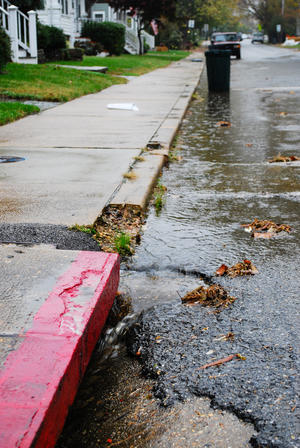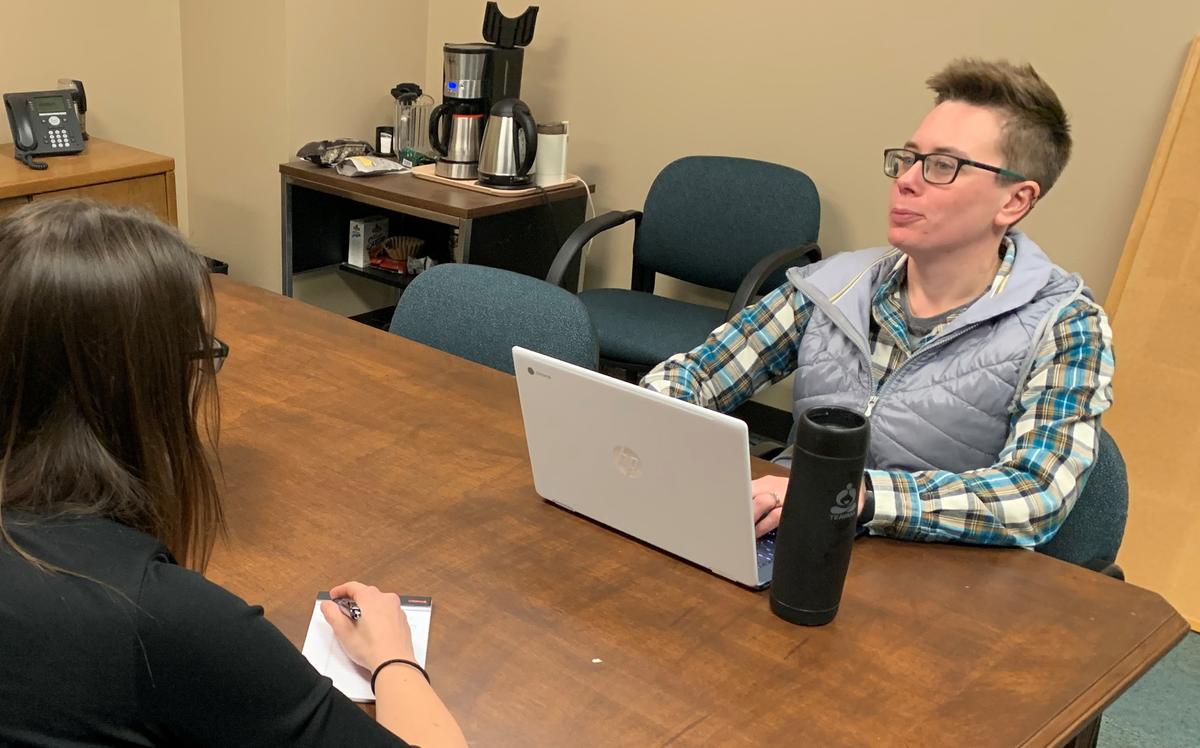More snow in the winter. More rain in the spring. That’s what scientists have predicted for the northern United States due to climate change. Minnesota has certainly experienced these dramatic changes.
And it makes the challenge of managing stormwater runoff especially difficult. Excessive stormwater carries landscape pollutants and sediment into streams and lakes. But there are things people can do to lessen the impact of stormwater on our freshwater resources.
 The Natural Resources Research Institute (NRRI) has teamed up with Minnesota Sea Grant to create a joint position that melds the research of stormwater management best practices with community outreach. Tiffany Sprague has been hired to build this new dual role into a model that other programs might follow.
The Natural Resources Research Institute (NRRI) has teamed up with Minnesota Sea Grant to create a joint position that melds the research of stormwater management best practices with community outreach. Tiffany Sprague has been hired to build this new dual role into a model that other programs might follow.
“NRRI researchers understand stormwater best management practices from the landscape level to the end of the pipe,” explained Sprague. “But that knowledge does no good within the walls of NRRI.”
Her goal is to get those best practices – like rain gardens and permeable paving – into backyards and grocery store parking lots. Sprague will spend approximately 50 percent of her time as NRRI’s Stormwater Research Coordinator and another quarter of her time as Sea Grant’s Resilience Extension Educator.
“So, I’ll sit at a meeting and represent the stormwater link, hearing the problems out there and find the researchers with solutions,” said Sprague.
Her remaining time is spent as NRRI’s Sustainability Coordinator, helping staff reduce waste in their daily work lives and reduce the impact of facilities operations.
A conversation with Sprague about her new responsibilities immediately reflects her environmental enthusiasm. Her passion for water quality started in college, studying biology. It grew while working for the National Park Service watching middle schoolers engage in citizen science projects. And then it all came together when working on her graduate degree with NRRI Forest and Lands Director, George Host, as an advisor.
“I was really open to which science discipline I studied, but I knew it had to engage with the community,” she said. “We live in a relatively pristine area, but we’re seeing environmental impacts. We’re on this cusp of preservation versus remediation and getting the public involved now is critical.”
Sprague is educating herself on who is doing what stormwater research at NRRI and across the University of Minnesota system. And it’s a lot. From developing roadside swales out of natural waste materials, to understanding the landscape’s role in water quality, and many projects in between. She’s talking to stakeholders and seeking funding to address their challenges.
And Sprague’s big goal has her really excited – a comprehensive stormwater study in Duluth across the rural, suburban and urban landscapes spanning all seasons. She’s seeking funding from the Minnesota Stormwater Research Council and pulling in NRRI’s cross-disciplinary expertise. UMD students will also be involved to get hands-on experiences in science.
“This is a completely new position that really leverages and magnifies what both organizations offer,” said Rolf Weberg, NRRI executive director. “NRRI’s 35 years of data and rigorous science with Minnesota Sea Grant’s strong science outreach capabilities. It’s an exciting opportunity for both organizations, and for Tiffany.”
Minnesota Sea Grant has a 42 year legacy of making science available to people and a mission to make communities resilient in the face of water problems like flooding, coastal erosion and lake level changes.
“Sea Grant, across the United States, works to keep people safe on our coasts,” said Minnesota Sea Grant Director John Downing. “This joint position keeps a really strong connection between the technical aspects of water and the human aspects of water. I think that’s really terrific.”
Learn more about NRRI.
